Take the First Step For Estimate!
- Accurancy
- Efficiency
- Transparency
- Customization
- Time Saving
- Professionalism
- Cost Control
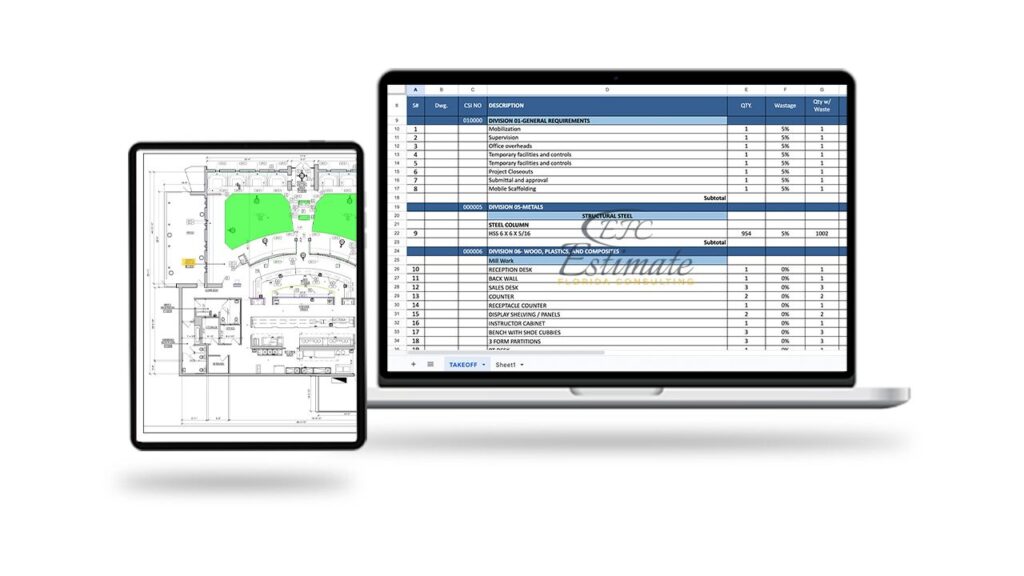
How much does it cost to replace flooring in industrial facilities? Well, it largely depends on your material choice and the specific needs of your facility. For standard options like concrete or epoxy, you’re looking at $3 to $15 per square foot, which means a 10,000 square foot area could cost anywhere from $30,000 to $150,000. If you need something more robust, like high-grade urethane or reinforced concrete to withstand extreme conditions, costs could jump to $5 to $30 per square foot, pushing your project to $50,000 to $300,000.
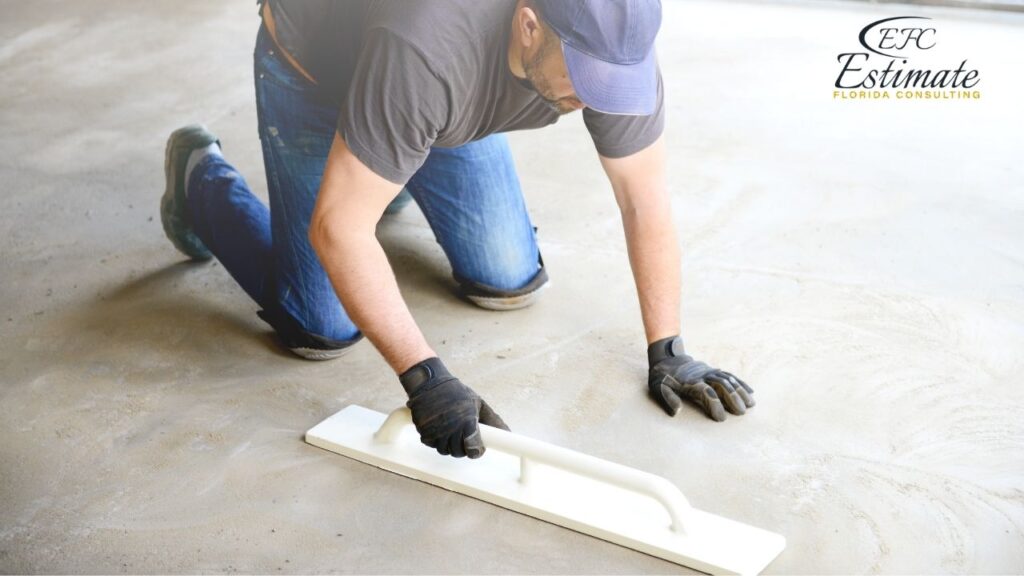
This range helps facility managers budget effectively, balancing operational requirements with financial considerations to maximize investment returns.

Flooring Material | Cost per Square Foot | Total Cost for 10,000 sq. ft. | Best For |
Concrete/Epoxy | $3 – $15 | $30,000 – $150,000 | Standard industrial environments, durability, and ease of maintenance |
High-Grade Urethane | $5 – $30 | $50,000 – $300,000 | Facilities requiring chemical resistance and heavy load bearing |
Reinforced Concrete | $5 – $30 | $50,000 – $300,000 | Extreme conditions, high durability, and longevity requirements |
Industrial facilities require flooring materials that can withstand heavy usage, chemical exposure, and other harsh conditions. Epoxy coatings, for example, offer durability and chemical resistance, making them suitable for areas prone to spills or corrosive substances. On the other hand, heavy-duty vinyl flooring provides a resilient surface that can handle heavy loads and foot traffic while offering some level of comfort underfoot. Each material comes with its own set of benefits and price points, with epoxy coatings typically being more expensive upfront due to their specialized properties and installation requirements.
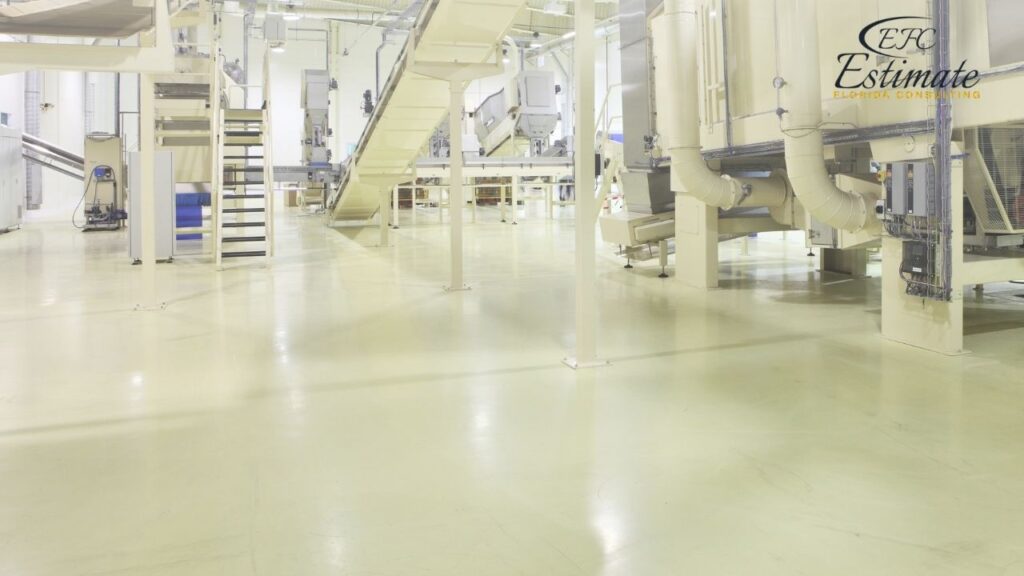
Conversely, heavy-duty vinyl may offer a more cost-effective solution without sacrificing durability or performance. The choice of material depends on factors such as the specific needs of the facility, budget constraints, and long-term maintenance considerations.
Industrial facilities often encompass vast spaces, from manufacturing plants to warehouses, distribution centers, and hangars. The size and scope of the flooring replacement project directly influence the overall cost, as larger areas require more materials and labor to complete. Moreover, the layout and configuration of the facility may present challenges in logistics and access, further impacting project timelines and costs. Careful planning and coordination are essential to accurately estimate the resources needed for such extensive projects, ensuring that the flooring replacement stays within budget and is completed efficiently.
Unlike commercial or residential environments, industrial facilities have unique requirements that must be addressed when choosing flooring materials. These requirements may include resistance to chemicals, abrasion, impact, thermal shock, or static electricity. Additionally, certain areas may need anti-slip surfaces to enhance safety for workers. Meeting these special requirements often involves selecting specialized flooring solutions that come at a higher cost compared to standard options. However, investing in appropriate flooring materials ensures the longevity and performance of the floor in industrial settings, ultimately reducing the risk of costly repairs or replacements down the line.
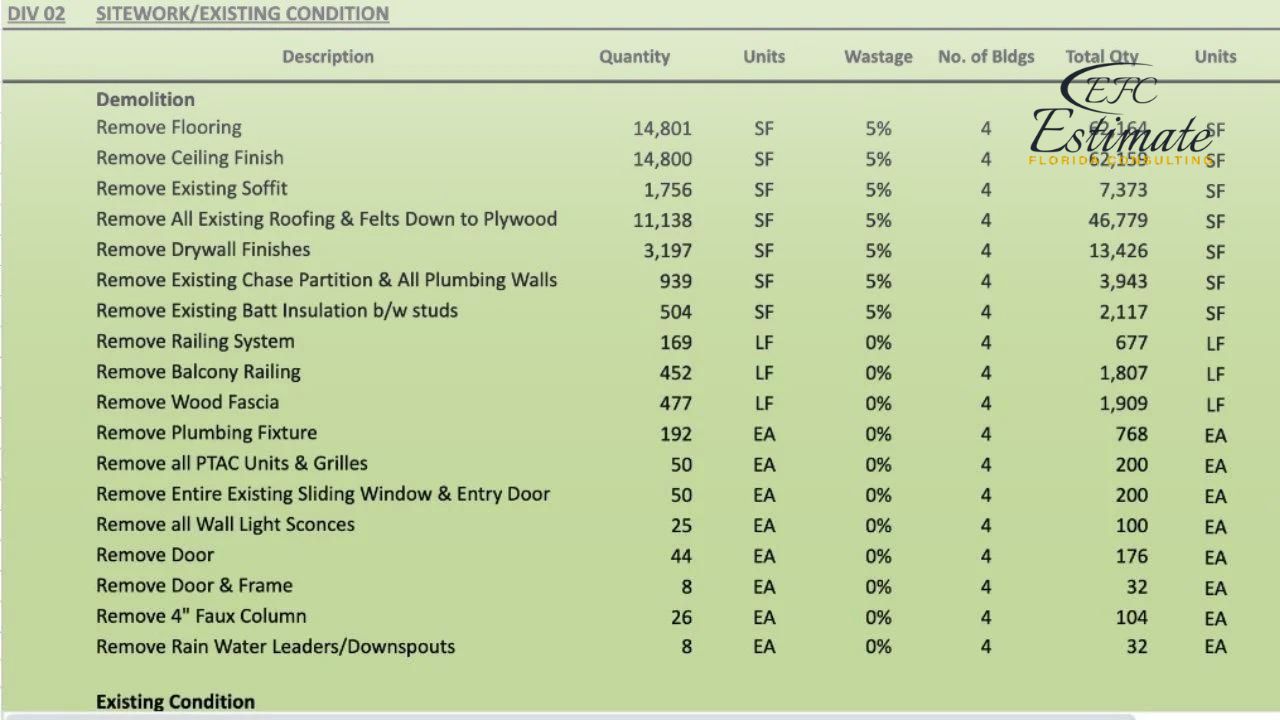
ZIP Code Based Estimate
Highly Accurate

Fully Insured License Hire Contractor for Commercial Building Flooring Replacement
Hire Contractor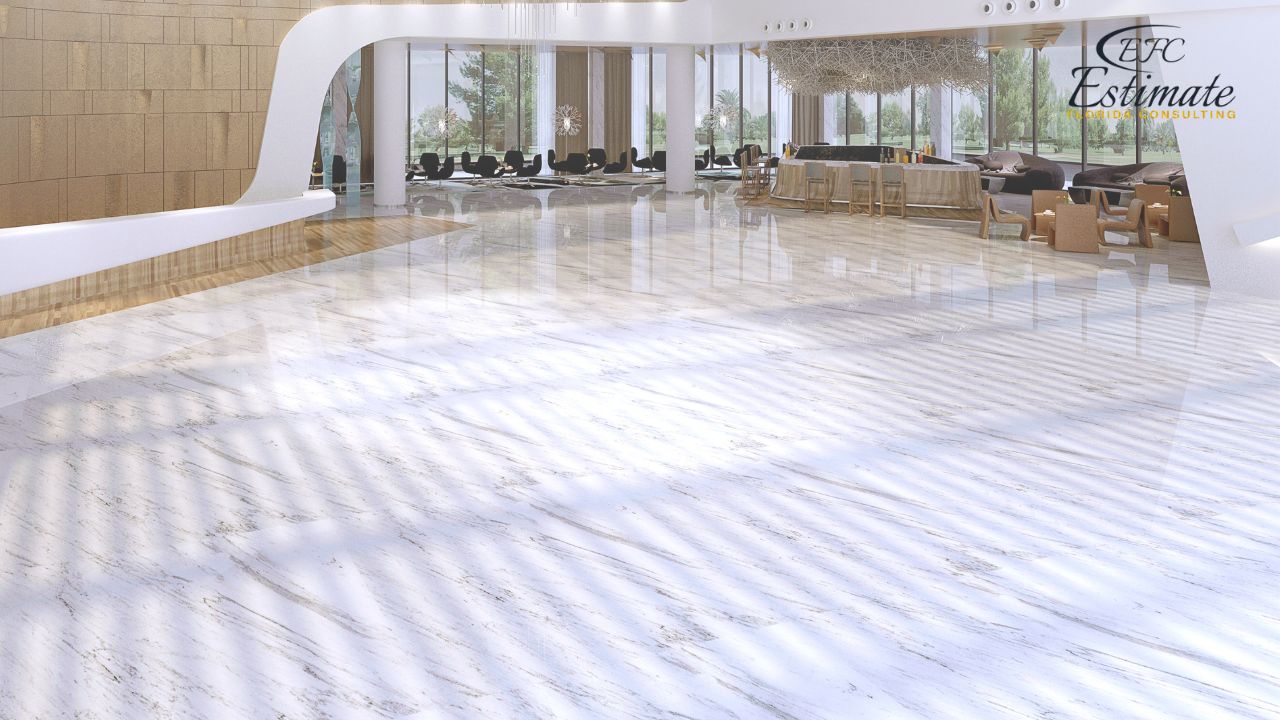
Make Informed Design Decisions Showcase Your Design Ideas
Get RenderingInstalling flooring in industrial facilities can be labor-intensive, especially when dealing with specialized materials like epoxy coatings. The complexity of the installation process, which may involve surface preparation, application of multiple layers, and adherence to strict environmental conditions, can significantly impact labor costs. Additionally, skilled labor may be required to ensure proper installation and adherence to industry standards and regulations. As such, labor costs represent a significant portion of the overall expense for flooring replacement projects in industrial settings, and careful consideration must be given to ensure that the project remains within budget.
Proper preparation of the subfloor is crucial for the success and longevity of industrial flooring installations. Any existing damage, unevenness, or contamination must be addressed before the new flooring can be laid down. Subfloor repairs and preparation work can add to the overall cost of the project, but they are essential for ensuring a smooth and durable surface that meets the facility’s requirements. Ignoring subfloor issues can lead to premature failure of the new flooring or compromise its performance, ultimately resulting in additional expenses for repairs or replacements. Therefore, investing in thorough subfloor preparation is a prudent decision that helps mitigate risks and ensures the long-term integrity of the industrial flooring.
Industrial facilities require flooring that can withstand harsh conditions, including heavy machinery operation, chemical spills, and constant foot traffic. Choosing the right flooring material is crucial for maintaining safety, hygiene, and operational efficiency. Below are popular flooring options tailored for industrial environments, each with unique advantages and cost implications.
Flooring Material | Characteristics | Cost per Square Foot | Ideal Use Cases |
Epoxy Coating | Durable, resistant to chemicals, easy to clean | $3 – $7 | Warehouses, manufacturing plants, garages |
Polished Concrete | Low maintenance, durable, visually appealing | $2 – $6 | Factories, showrooms, commercial spaces |
Rubber Flooring | Impact-resistant, anti-slip, comfortable underfoot | $3 – $8 | Areas requiring cushioning and safety, such as assembly lines |
Urethane Concrete | Extremely durable, resistant to thermal shock and chemicals | $6 – $12 | Food processing plants, areas with extreme temperature changes |
Vinyl Composite Tile (VCT) | Cost-effective, variety of designs, requires regular maintenance | $1 – $3 | Light industrial and commercial areas, offices within industrial facilities |
Quarry Tile | High durability, slip-resistant, low absorption rate | $4 – $8 | High-moisture areas, commercial kitchens within industrial settings |
Epoxy and polyurethane floor coatings are renowned for their durability and resistance to chemicals, making them ideal choices for various industrial environments. These coatings provide a protective barrier that shields the underlying substrate from damage caused by spills, abrasion, and other harsh conditions commonly encountered in industrial settings. While highly effective, the preparation and installation process for epoxy and polyurethane coatings can be labor-intensive and complex, driving up the overall cost of the flooring system.
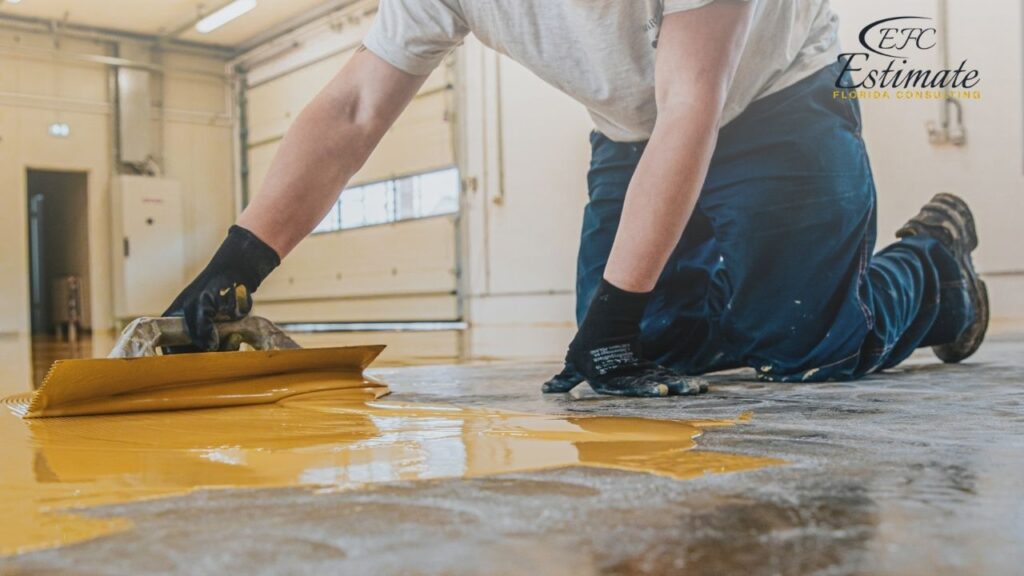
Surface preparation is crucial to ensure proper adhesion and performance of the coatings, often requiring extensive cleaning, patching, and leveling of the substrate. Additionally, specialized equipment and skilled labor may be necessary to apply the coatings correctly and achieve the desired results. Despite the initial investment, the long-term benefits of epoxy and polyurethane floor coatings, including their durability and low maintenance requirements, often justify the higher upfront cost for industrial facilities seeking reliable and long-lasting flooring solutions.
Concrete flooring is a popular choice for industrial environments due to its inherent durability, ease of maintenance, and cost-effectiveness, particularly for large areas. Untreated concrete floors offer excellent resistance to heavy loads, abrasion, and chemical exposure, making them suitable for a wide range of applications. Additionally, concrete floors can be polished to enhance their aesthetic appeal and durability, creating a smooth, glossy surface that is resistant to stains and easier to clean. While the initial cost of concrete flooring may be lower compared to some other options, the installation process can still require significant labor and equipment expenses, especially for polishing. However, the long-term benefits of concrete flooring, such as its longevity and minimal maintenance requirements, make it a cost-effective solution for industrial facilities looking for durable and reliable flooring options.
Heavy-duty vinyl and linoleum flooring offer easy cleaning and maintenance, making them suitable for areas where hygiene is paramount. While these options may not withstand heavy machinery and high-traffic areas as well as some other flooring materials, they are still viable choices for certain industrial environments with lighter usage requirements. Heavy-duty vinyl and linoleum flooring typically come at a lower cost compared to options like epoxy coatings or concrete, making them attractive options for facilities operating within budget constraints. However, it’s essential to consider the specific needs and demands of the industrial setting when selecting flooring materials, as choosing the wrong option could result in premature wear and require costly repairs or replacements. Overall, heavy-duty vinyl and linoleum flooring offer a balance between affordability and functionality, providing a practical solution for industrial spaces where durability and ease of maintenance are key considerations.
The per square foot estimation strategy is a widely used approach for quickly obtaining a rough estimate of flooring replacement costs. It involves calculating the total flooring area and multiplying it by the average cost per square foot of the chosen flooring material, factoring in labor costs as well. While this method provides a convenient starting point for budgetary planning, it may not account for specific nuances or complexities of the project, such as subfloor preparation or specialized requirements for industrial environments. Additionally, variations in material prices and labor rates can affect the accuracy of the estimate. Despite its limitations, per square foot estimation offers a straightforward way to gauge project expenses and is particularly useful for initial budgetary assessments or preliminary discussions with stakeholders.
Comprehensive estimation entails a thorough analysis of all specific factors contributing to the project’s cost, including material costs, labor, subfloor preparation, and any potential downtime costs associated with facility operations. Unlike per square foot estimation, which provides a rough estimate based on surface area alone, comprehensive estimation takes into account the unique requirements and challenges of the industrial flooring project. This approach offers a more accurate and detailed figure, allowing for better budget allocation and resource planning. By considering all relevant factors, comprehensive estimation helps mitigate the risk of unexpected expenses or delays during the project execution phase, ensuring a smoother and more cost-effective flooring replacement process for industrial facilities.
Employing professional estimation services specialized in industrial flooring projects can provide the most accurate and reliable cost estimations. These professionals have the expertise and experience to assess all aspects of the project comprehensively, from material selection and procurement to labor requirements, subfloor preparation, and potential downtime costs. By leveraging their knowledge and industry insights, professional estimators can ensure that all relevant factors are considered, resulting in a more precise budget estimate tailored to the specific needs and challenges of the industrial facility. Furthermore, outsourcing estimation tasks to professionals saves time and resources for facility managers, allowing them to focus on other critical aspects of the project. Overall, utilizing professional estimation services offers peace of mind and confidence in the accuracy of the budget forecast, facilitating informed decision-making and successful project execution.
When planning for industrial flooring replacement, prioritizing long-term durability is essential for minimizing future costs associated with repairs and replacements. Investing in high-quality flooring materials that are specifically designed to withstand the harsh conditions of industrial environments can result in significant savings over time. While the initial cost of durable flooring options may be higher, their longevity and resistance to wear, abrasion, and chemical exposure make them a wise investment in the long run.
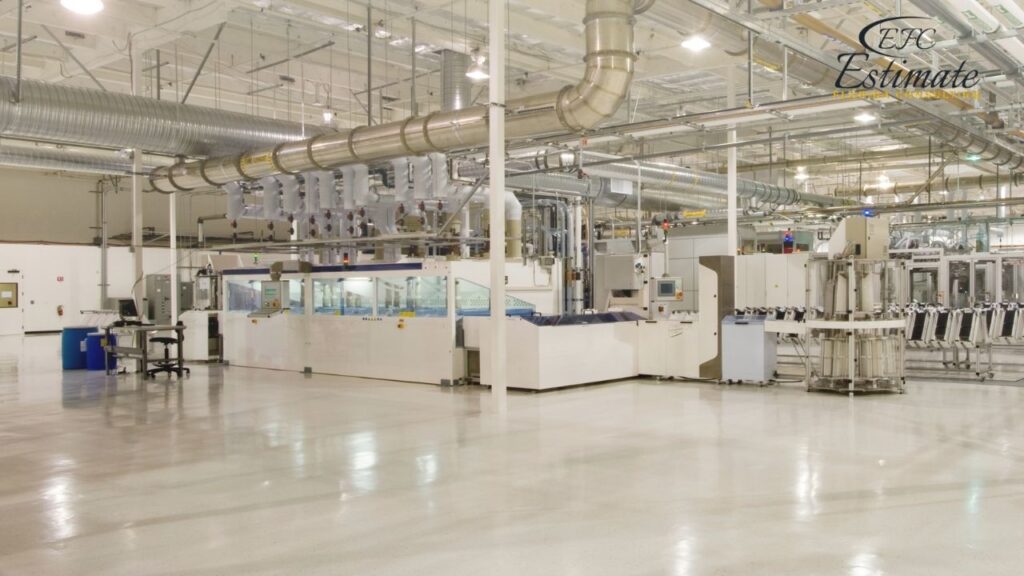
Additionally, choosing flooring materials with low maintenance requirements can further reduce ongoing expenses associated with upkeep and repairs. By prioritizing durability during the planning phase, industrial facilities can ensure that their flooring investment delivers lasting value and minimizes the total cost of ownership over its lifespan.
Leveraging the size of the flooring replacement project to negotiate better prices for materials through bulk purchasing can significantly reduce overall costs. Industrial facilities undertaking large-scale flooring projects have greater purchasing power, allowing them to negotiate favorable terms with suppliers and manufacturers. By consolidating material orders and procuring in bulk, facilities can take advantage of volume discounts and economies of scale, resulting in substantial savings on material costs. Additionally, engaging in negotiations with suppliers to secure competitive pricing and favorable payment terms can further optimize project budgets. Effective negotiation strategies, such as obtaining multiple quotes and leveraging relationships with trusted suppliers, can help industrial facilities maximize their purchasing efficiency and minimize expenses associated with material procurement.
Careful planning and scheduling of the flooring replacement project are essential for minimizing operational disruptions and associated costs. Industrial facilities often operate on tight production schedules, and downtime for flooring replacement can result in lost productivity and revenue. By strategically planning the timing of the project to coincide with scheduled shutdowns or low-production periods, facilities can minimize the impact on operations and avoid costly downtime expenses. Additionally, coordinating with contractors and suppliers to ensure efficient project execution and timely delivery of materials can help streamline the installation process and minimize delays. Implementing measures to accelerate installation, such as utilizing rapid-curing flooring systems or prefabricated components, can further reduce downtime and associated costs. Overall, scheduling work effectively to minimize downtime is crucial for optimizing project timelines and minimizing the financial impact of flooring replacement on industrial operations.
Receive highly accurate estimates tailored to your zip code, giving you the edge to secure more projects. Upload your plans and start winning!
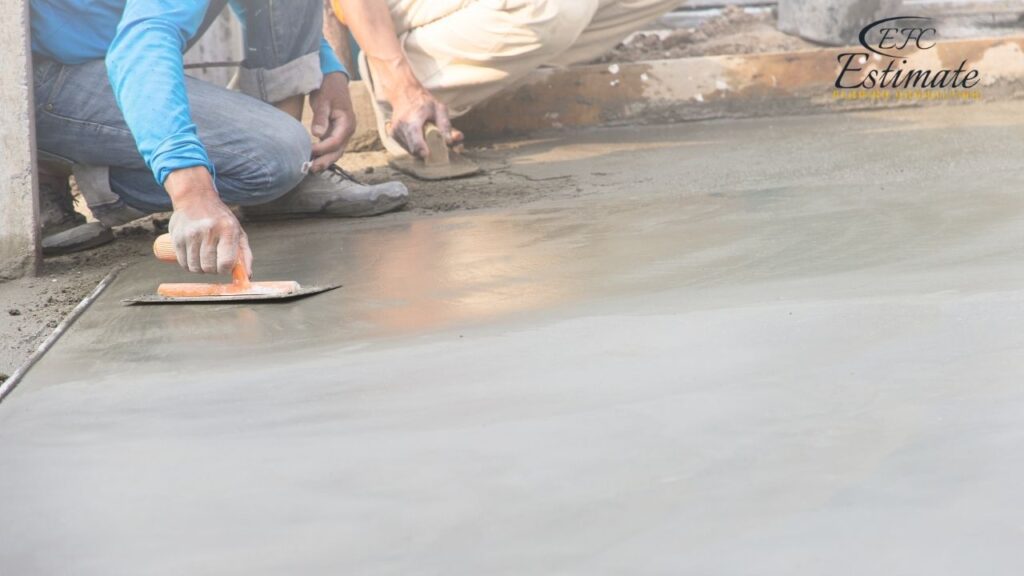
So, why wait? Send us your plans and give us a call now. Let’s make your project a success together!

Accurate cost estimation is crucial for the successful replacement of flooring in industrial facilities. Factors such as the type of flooring material, project size, special requirements, labor costs, and long-term maintenance expenses must be carefully considered to ensure budgetary planning and operational efficiency. By prioritizing durability, leveraging cost-saving strategies, and selecting suitable flooring options tailored to the facility’s needs, industrial operations can minimize expenses and maximize the value of their flooring investments over time.
The selection should be based on the facility’s specific needs, including traffic levels, exposure to chemicals, the necessity for heavy load bearing, and desired aesthetics. Evaluate each material’s durability, maintenance requirements, and cost-effectiveness. Consulting with a flooring expert can also provide personalized recommendations based on your facility’s unique conditions.
Yes, epoxy coatings can be applied over existing concrete floors to enhance durability, resistance to chemicals, and ease of maintenance. However, the concrete must be properly prepared, cleaned, and repaired if necessary, to ensure the coating adheres correctly and performs as expected.
Polyurethane floors offer excellent durability, resistance to high temperatures and chemicals, and are capable of withstanding heavy traffic. They’re also flexible, which helps them resist impact and abrasions, making them ideal for spaces with temperature variations and heavy machinery.
Vinyl Composite Tile (VCT) is a cost-effective solution for areas with low to moderate traffic. It offers a variety of design options, ease of installation, and minimal maintenance needs, all while being more affordable than some other flooring options.
Proper subfloor preparation is critical to the longevity and performance of the new flooring. This may involve leveling, repairing damages, or applying specific treatments to ensure the new floor adheres well and remains flat and stable. Neglecting this step can lead to premature wear and failure of the flooring system.
Maintenance needs vary by material but generally include regular cleaning, prompt spill management, and periodic resealing or recoating for protective surfaces like epoxy or polyurethane. Establishing a consistent maintenance schedule can extend the life of your flooring and maintain its appearance and safety features.
Total costs can vary widely, from $20,000 for basic VCT in a 10,000 sq.ft. area to up to $300,000 for high-end polyurethane floors, depending on the choice of material, size of the project, and specific requirements like subfloor preparation and complexity of installation.
Here I am going to share some steps to get your flooring replacement cost for industrial facilities estimate report.
You can send us your plan on info@estimatorflorida.com
Before starting your project, we send you a quote for your service. That quote will have detailed information about your project. Here you will get information about the size, difficulty, complexity and bid date when determining pricing.
Our team will takeoff and estimate your project. When we deliver you’ll receive a PDF and an Excel file of your estimate. We can also offer construction lead generation services for the jobs you’d like to pursue further.



561-530-2845
info@estimatorflorida.com
Address
5245 Wiles Rd Apt 3-102 St. Pete Beach, FL 33073 United States
561-530-2845
info@estimatorflorida.com
Address
5245 Wiles Rd Apt 3-102 St. Pete Beach, FL 33073 United States
All copyright © Reserved | Designed By V Marketing Media | Disclaimer